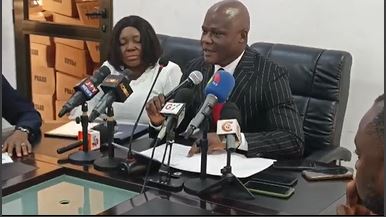Kwabena Adu Koranteng writes
Throughout Africa’s post-independence history, the single most persistent obstacle to progress has been the crisis of leadership.
Many who have ascended to political office have governed as rulers or administrators rather than visionary leaders. True leaders are rare — they appear once in a generation, sometimes once in a century. Ghana has been fortunate to have produced a few.
The Legacy of Nkrumah, Danquah, and Busia
At independence in 1957, Osagyefo Dr. Kwame Nkrumah laid the foundation for Ghana’s socio-economic transformation. His Seven-Year Development Plan (1963–1970) sought to industrialize Ghana and reduce dependency on raw material exports. Under Nkrumah, Ghana built the Akosombo Dam, the Tema Harbour, Valco Aluminium Smelter, and the Kwame Nkrumah University of Science and Technology (KNUST) — monumental investments that shaped the nation’s industrial and educational landscape.
While his vision was unmatched, political instability cut his mission short with the 1966 coup, ushering in years of alternating military and civilian governments that disrupted long-term planning and policy continuity.
Dr. Kofi Abrefa Busia, who served as Prime Minister from 1969 to 1972, sought to liberalize the economy and promote private enterprise, while Dr. Joseph Boakye Danquah’s intellectual foundation inspired constitutionalism and democratic governance. Yet, their efforts were also derailed by political turbulence and economic difficulties.
Kufuor and the Era of Economic Stability
After two decades of instability and economic decline, President John Agyekum Kufuor (2001–2009) emerged as a symbol of competent, visionary leadership. His administration navigated Ghana out of the Highly Indebted Poor Country (HIPC) initiative, reducing the national debt by over US$4 billion and attracting record foreign direct investment.
Under Kufuor, Ghana’s GDP growth averaged 6.3% annually, inflation dropped from over 40% in 2000 to 12% by 2008, and the country discovered commercial quantities of oil in 2007. His National Health Insurance Scheme (NHIS), School Feeding Programme, and Mass Transportation (Metro Mass Transit) system modernized public welfare.
Kufuor’s economic diplomacy and good governance earned Ghana international respect, paving the way for middle-income status by 2010.
Akufo-Addo’s Social Transformation Agenda
When President Nana Addo Dankwa Akufo-Addo took office in 2017, Ghana’s economy was struggling under high debt and fiscal indiscipline. His bold introduction of the Free Senior High School (SHS) policy opened access to education for over 1.6 million students who might otherwise have been excluded.
Through the One District, One Factory (1D1F) initiative, more than 125 factories were completed or in progress by 2023, driving industrialization and job creation. The Planting for Food and Jobs programme boosted food security, while massive investments in digitalization, health, and infrastructure set Ghana on a transformative path.
The Bawumia Vision: Intelligence, Innovation, and Integrity
Now, Ghana stands on the threshold of a new chapter. The nation requires a leader equipped with both intellectual acuity and technological foresight — one who can transform the economy through data-driven governance and digital innovation.
Dr. Mahamudu Bawumia, the current Vice President, embodies that rare combination of intelligence, humility, and innovation. Trained as an economist at Oxford and Simon Fraser Universities, and formerly Deputy Governor of the Bank of Ghana, Dr. Bawumia’s impact has been tangible.
• His Mobile Money Interoperability initiative revolutionized Ghana’s payment systems, integrating banking, telecom, and fintech platforms into a unified digital economy — making Ghana one of the first countries in Africa to achieve such integration.
• The Zipline drone delivery system, launched in 2019 under his supervision, positioned Ghana as a global pioneer in medical logistics, ensuring timely delivery of blood and essential medicines to remote areas.
• The Digital Property Addressing System, National ID (Ghana Card) integration, and online passport and port systems reflect his commitment to eliminating corruption through efficiency and transparency.
• His Gold-for-Oil programme reduced forex pressure on the cedi and introduced a model for resource-backed trade that other African economies are now studying.
Dr. Bawumia’s record shows that he doesn’t just theorize — he implements transformative ideas.
The Path to First-World Status
Ghana’s natural resource base — gold, bauxite, cocoa, oil, and lithium — offers immense potential. Yet, without value addition, industrial diversification, and digital modernization, the nation will remain trapped in the resource-export cycle.
Dr. Bawumia’s vision for a digitally empowered economy, where technology drives governance, production, and commerce, represents the next frontier of national development. His combination of technical competence, moral discipline, and humility makes him uniquely qualified to steer Ghana toward first-world status — a nation defined not by its resources, but by its innovation, efficiency, and human capital.
Ghana’s future depends on leadership that thinks beyond politics — leadership that builds systems, not slogans. Dr. Bawumia is that leader. Enditem
Share Us



